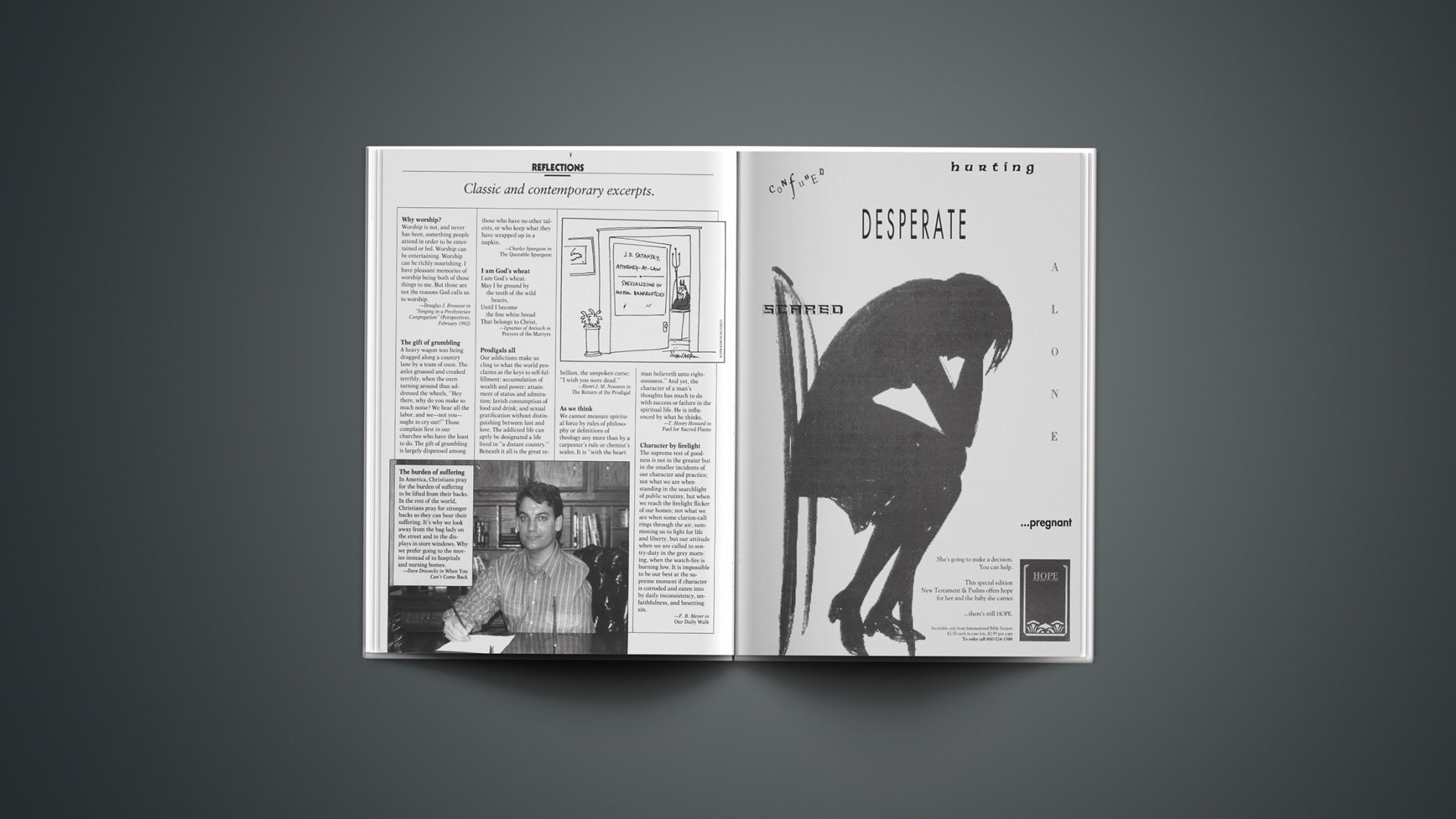Classic and contemporary excerpts.
Why Worship?
Worship is not, and never has been, something people attend in order to be entertained or fed. Worship can be entertaining. Worship can be richly nourishing. I have pleasant memories of worship being both of those things to me. But those are not the reasons God calls us to worship.
—Douglas J. Brouwer in “Singing in a Presbyterian Congregation” (Perspectives, February 1992)
The Gift Of Grumbling
A heavy wagon was being dragged along a country lane by a team of oxen. The axles groaned and creaked terribly, when the oxen turning around thus addressed the wheels, “Hey there, why do you make so much noise? We bear all the labor, and we—not you—ought to cry out!” Those complain first in our churches who have the least to do. The gift of grumbling is largely dispensed among those who have no other talents, or who keep what they have wrapped up in a napkin.
—Charles Spurgeon in
The Quotable Spurgeon
I Am God’S Wheat
I am God’s wheat.
May I be ground by the teeth of the wild beasts,
Until I become the fine white bread
That belongs to Christ.
—Ignatius of Antioch in
Prayers of the Martyrs
Prodigals All
Our addictions make us cling to what the world proclaims as the keys to self-fulfillment: accumulation of wealth and power; attainment of status and admiration; lavish consumption of food and drink; and sexual gratification without distinguishing between lust and love. The addicted life can aptly be designated a life lived in “a distant country.” Beneath it all is the great rebellion, the unspoken curse: “I wish you were dead.”
—Henri J. M. Nouwen in The Return of the Prodigal
As We Think
We cannot measure spiritual force by rules of philosophy or definitions of theology any more than by a carpenter’s rule or chemist’s scales. It is “with the heart man believeth unto righteousness.” And yet, the character of a man’s thoughts has much to do with success or failure in the spiritual life. He is influenced by what he thinks.
—T. Henry Howard in Fuel for Sacred Flame
Character By Firelight
The supreme test of goodness is not in the greater but in the smaller incidents of our character and practice; not what we are when standing in the searchlight of public scrutiny, but when we reach the firelight flicker of our homes; not what we are when some clarion-call rings through the air, summoning us to fight for life and liberty, but our attitude when we are called to sentry-duty in the grey morning, when the watch-fire is burning low. It is impossible to be our best at the supreme moment if character is corroded and eaten into by daily inconsistency, unfaithfulness, and besetting sin.
—F. B. Meyer in Our Daily Walk










